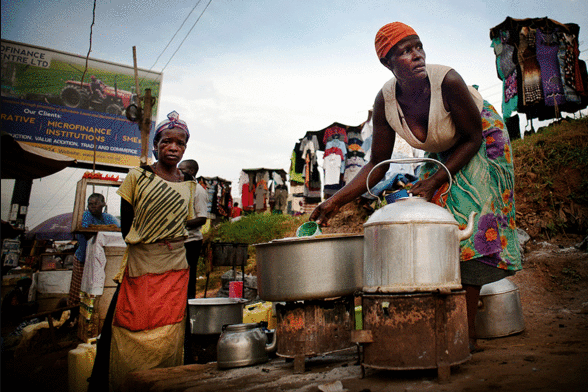After lengthy pleas from Ugandans, a government-appointed committee set up in 2015 has recommended Shs136,000 as the lowest pay per month to any worker, including housemaids as a way of solving economic hardships.
The lack of established practice to set minimum wages in Uganda has left workers vulnerable to exploitation, where the high levels of unemployment force workers to accept pay well below what could be considered a decent wage.
And Gender minister Janet Mukwaya and Permanent Secretary Pius Bigirimana received the report on minimum wages from Minimum Wages Advisory Board chairperson Mr. Chris Kanya at the ministry headquarters in Kampala on Thursday which the board deems “is likely to solve some but not all the economic challenges” the country is facing.
It is not clear if the minimum wage will be approved but the government had committed to have it in force by July 2015.
President Museveni is understandably against the minimum wage issue, which he argues will stifle investment.
Why Uganda needs minimum wage
A minimum wage is the lowest monetary value which may be paid to those workers who don’t have any salary structure but if they happen to get a job their payment should be at a particular point.
The last time Uganda set a minimum wage was in 1984 when this was set at Shs6,000 per month, which has remained in force to this day.
However, there were attempts in 1995 when the Minimum Wage Advisory Council recommended a Sh75,000 minimum monthly wages for unskilled workers, but this was never implemented.
Different people pay different rates over and above the minimum wage. Since the minimum wage has never been changed or removed for a long time, it remains the minimum although it is now a very low minimum which is almost impossible for anybody to pay below it.
Ideally, workers are entitled to at least one day of rest per week (24 consecutive hours) according to Section 51 of the Employment Act, 2006.
For several years, Unionists have pushed government to fix the minimum wage to protect workers from exploitation.
But some government officials say minimum wage will hurt small businesses more than larger ones and in the long-term result in higher long-term unemployment rate. If the law works well, it should minimise the loss of jobs while preserving competitiveness.
Uganda as a member of the East African Community is required to comply like the other member countries to have a functioning minimum wage.
Kenya, the region’s biggest economy’s minimum wage is set by the government by location, age and skill level; the lowest urban minimum wage was Kshs10, 107.10 (Shs330,000) per month, and the lowest agricultural minimum wage for unskilled employees is Kshs5,436.90 (Shs178,500) per month, excluding housing allowance.











